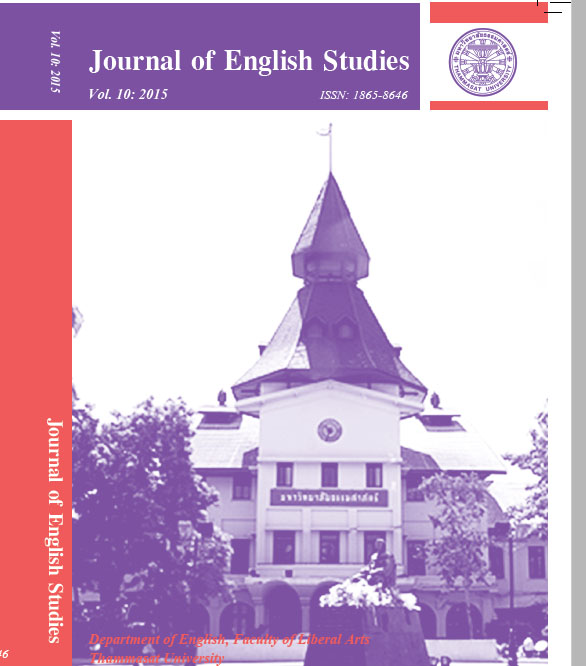Gender and Lexical Representation in Enid Blyton’s The Famous Five: A Corpus-based Study
Main Article Content
Abstract
Corpus stylistics is deemed promising in literary school as it
fosters cautious optimism in using empirical evidence to support
individualistic interpretations. Also, it is established that we are living
in a digital era where texts are produced more in form of electronic
text. This study aims to use corpus-based analyses to offer empirical
data that reveals about language behavior of what literary critics have
been studied in The Famous Five, one of the most popular series of
children’s literature in the world, with respect to literary themes and
gender representation. The study uses two corpus analysis tools, Wmatrix
and AntConc, to generate information such as key semantic fields
(thematic categorizations), collocations and concordances. Using the
corpus-based information, this paper concludes that The Famous Five
comprises the essence of adventures and mysteries and that the story
contains conventional stereotypes of male and female protagonists.
Amongst the entire group, George, or Georgina, is the most intriguing
character because she has been represented as an impatient and outspoken
character, characterized by the lexical choices that the author has made.
Keywords: corpus stylistics; gender representation; lexical representation


